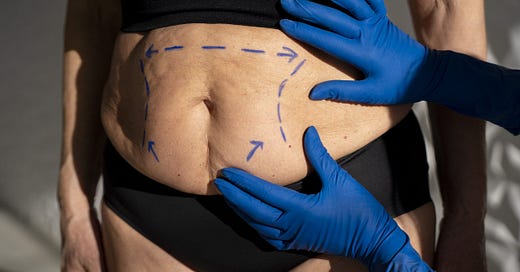What Are the First 30 Days Like After Bariatric Surgery?
Lose weight and reduce health risks with bariatric surgery—a proven solution for long-term weight management and improved wellness.
For anyone preparing to undergo weight loss surgery, a pressing question is, what are the first 30 days like after bariatric surgery? This initial month is a crucial period of healing, adjustment, and transition. Understanding the physical, emotional, and dietary changes that take place during this time helps patients prepare for a smoother recovery and sets the foundation for long-term success. This article covers what to expect in the first 30 days, the importance of the bariatric surgery(جراحة السمنة لفقدان الوزن) treatment, associated risks, benefits, frequently asked questions, and a conclusion to guide patients through this vital phase.
The Importance of the First 30 Days After Surgery:
Why Early Recovery Sets the Stage for Success
The first 30 days after bariatric surgery are essential for several reasons. This period allows the body to heal from surgery, adjust to a new digestive system, and adapt to lifestyle changes. Following post-operative guidelines carefully during this time reduces complications and improves surgical outcomes.
Proper nutrition, hydration, rest, and physical activity all play critical roles in supporting healing and promoting weight loss. This phase also helps patients develop new habits necessary for maintaining their health and preventing weight regain.
What to Expect: Physical and Dietary Changes
Key Adjustments During the First Month
Dietary progression: Starting with clear liquids, gradually moving to pureed foods, then soft foods, before finally introducing solid foods.
Limited stomach capacity: Small meals and slow eating are crucial to avoid discomfort or complications.
Physical recovery: Mild pain, fatigue, and swelling are common as the body heals.
Hydration: Drinking adequate fluids throughout the day while avoiding drinking with meals to prevent stretching the stomach.
Emotional fluctuations: Mood swings or anxiety may occur due to hormonal changes and lifestyle shifts.
These changes require patience and commitment to overcome initial challenges.
Risks During the First 30 Days:
Potential Complications to Watch For
While most patients recover smoothly, some risks exist in the early recovery phase:
Surgical site infection or bleeding
Dehydration due to inadequate fluid intake
Nausea and vomiting caused by intolerance to certain foods
Dumping syndrome, particularly after gastric bypass
Blood clots due to reduced mobility
Awareness and prompt management of these risks are vital to avoid setbacks.
Benefits of Adhering to Post-Operative Guidelines:
How Compliance Supports Healing and Weight Loss
Following medical and nutritional advice during the first 30 days results in:
Reduced risk of complications such as leaks or infections
Faster healing and improved energy levels
Successful adaptation to new eating habits
Smoother transition to long-term diet and lifestyle changes
Early momentum in weight loss progress
This period is foundational for the long-term benefits of Best bariatric surgery(أفضل جراحة السمنة لفقدان الوزن).
Frequently Asked Questions About the First 30 Days:
Can I work during the first 30 days after surgery?
Most patients need at least 2-4 weeks off work depending on their recovery speed and job type.
When can I start exercising again?
Light activities like walking can begin soon after surgery, but strenuous exercise should wait until cleared by medical guidelines.
How often should I eat in the first month?
Small, frequent meals are recommended, usually 5-6 times a day, focusing on nutrient-rich foods.
What if I experience nausea or vomiting?
These symptoms should be reported promptly as they may indicate dietary intolerance or dehydration.
Is it normal to feel emotional or depressed?
Emotional changes are common due to hormonal shifts and lifestyle adjustments; support groups can be helpful.
Conclusion:
In conclusion, what are the first 30 days like after bariatric surgery? This period involves critical healing, dietary changes, and emotional adjustment. Understanding the importance of following guidelines, recognizing risks, and embracing the benefits leads to a smoother recovery and sets the stage for lifelong success. Patients who prepare mentally and physically for this initial phase are more likely to achieve sustainable weight loss and improved health outcomes. Commitment during these first 30 days can truly transform the entire bariatric journey.




